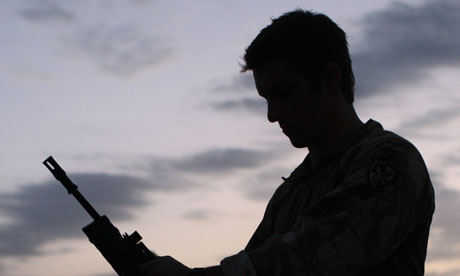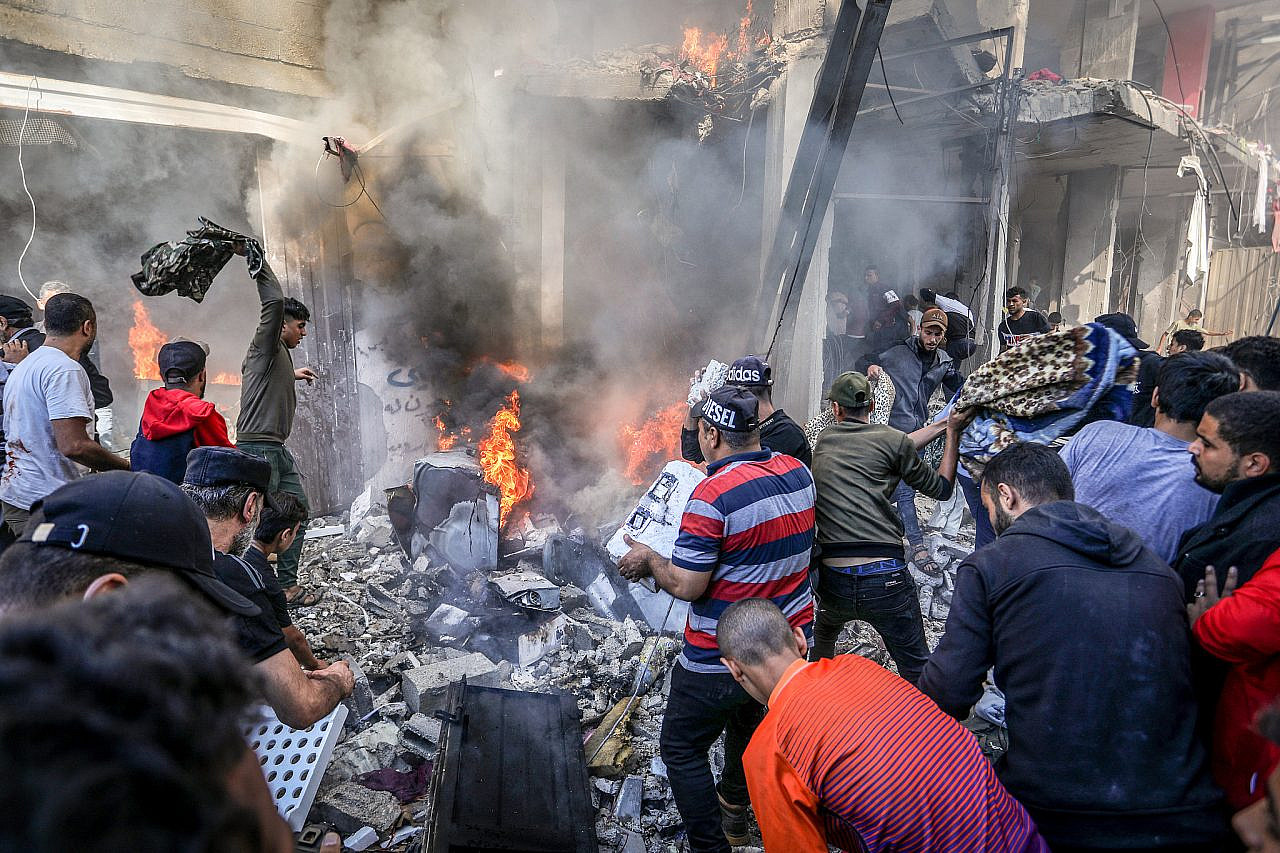 Veterans of Iraq and Afghanistan find little ethical defence in the 'just war'. Each of us struggles to make peace with our actions.
Veterans of Iraq and Afghanistan find little ethical defence in the 'just war'. Each of us struggles to make peace with our actions.
In trying to understand the ongoing suicide epidemic among soldiers and veterans a third factor in addition to physical injuries and PTSD is now being discussed: the moral injuries they bring back.
The US Department of Veterans Affairs recently coined the terminology and is spot-on in its choice. During my officer training at Sandhurst in the UK, I was taught that fighting power – the ability to operate in war – could be broken down to three mutually dependent components: physical (the means to operate), conceptual (the ideas behind how to operate), and moral (the ability to get people to operate).
Soldiers leave theatres of war affected to different degrees in those three areas, each of which influences their ability to operate once home. The physical and conceptual are all too apparent: the soldier who had his testicles blown off or who wakes up screaming at night. Moral scars, though less noticeable, have a way of cutting deep, also. And they are not negated as easily as many suppose.





 The United States will mark the 84th anniversary of the Japanese attack on the U.S. naval...
The United States will mark the 84th anniversary of the Japanese attack on the U.S. naval... In 2021, a book titled “The Human-Machine Team: How to Create Synergy Between Human and Artificial...
In 2021, a book titled “The Human-Machine Team: How to Create Synergy Between Human and Artificial...:focal(1285x1016:1286x1017)/https://tf-cmsv2-smithsonianmag-media.s3.amazonaws.com/filer_public/d1/4e/d14ed238-3b62-4506-9f53-fc2178dade60/nov2025_d17_prologue.jpg) In the fall of 1945, a bit more than six years after Nazi Germany invaded Poland...
In the fall of 1945, a bit more than six years after Nazi Germany invaded Poland... The last plane carrying U.S. forces left Afghanistan on Monday, meeting an Aug. 31 deadline to withdraw...
The last plane carrying U.S. forces left Afghanistan on Monday, meeting an Aug. 31 deadline to withdraw...






























